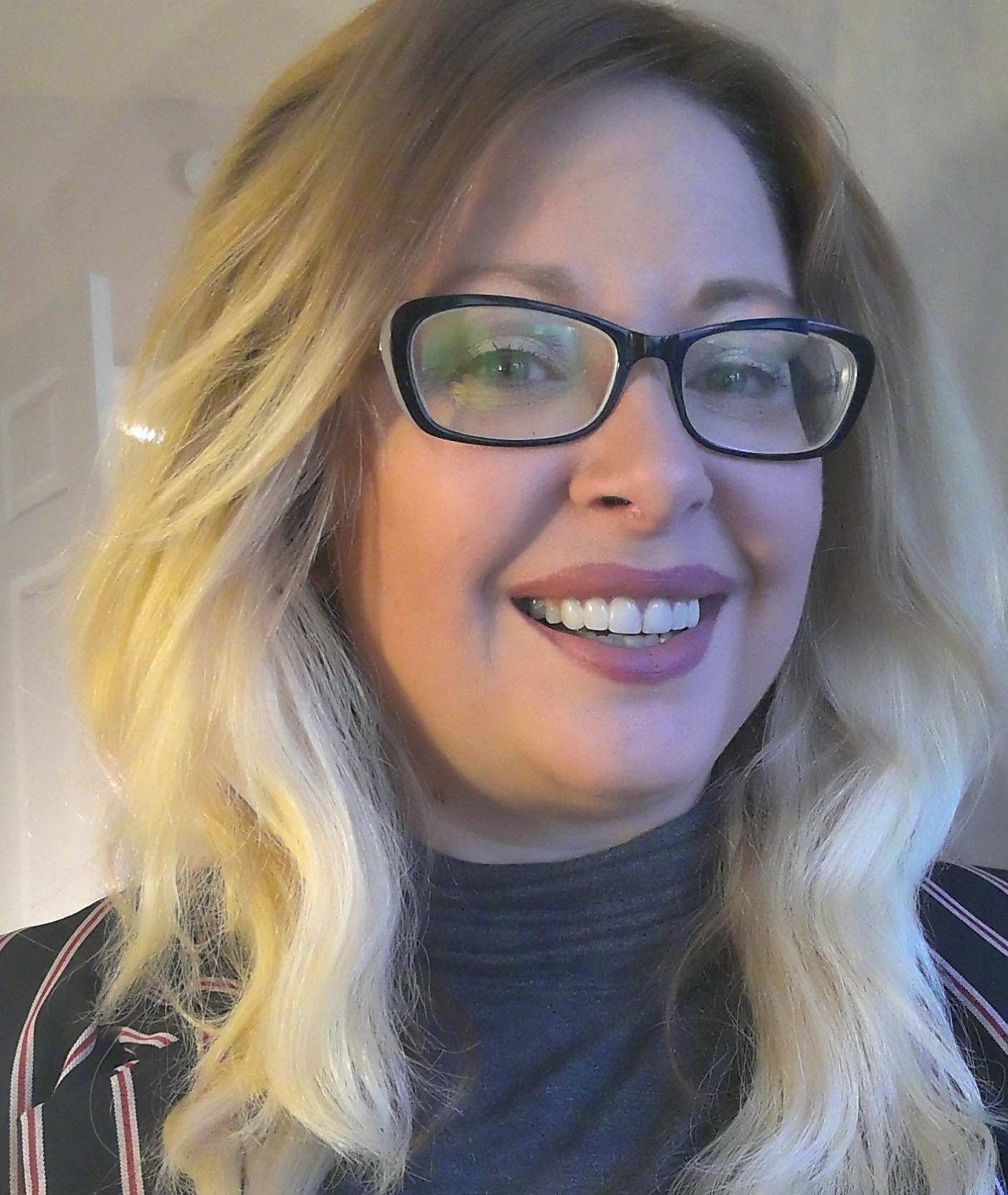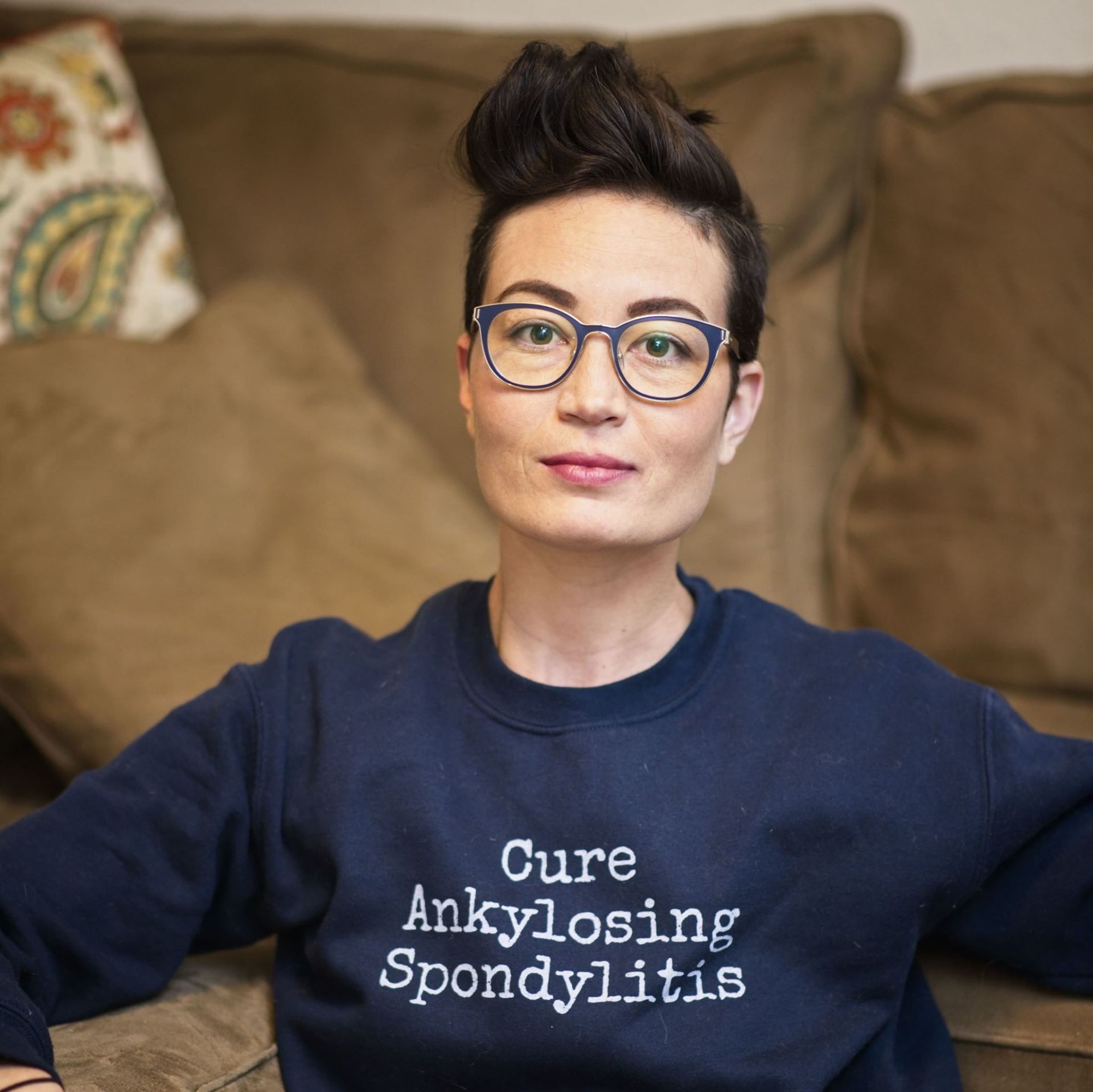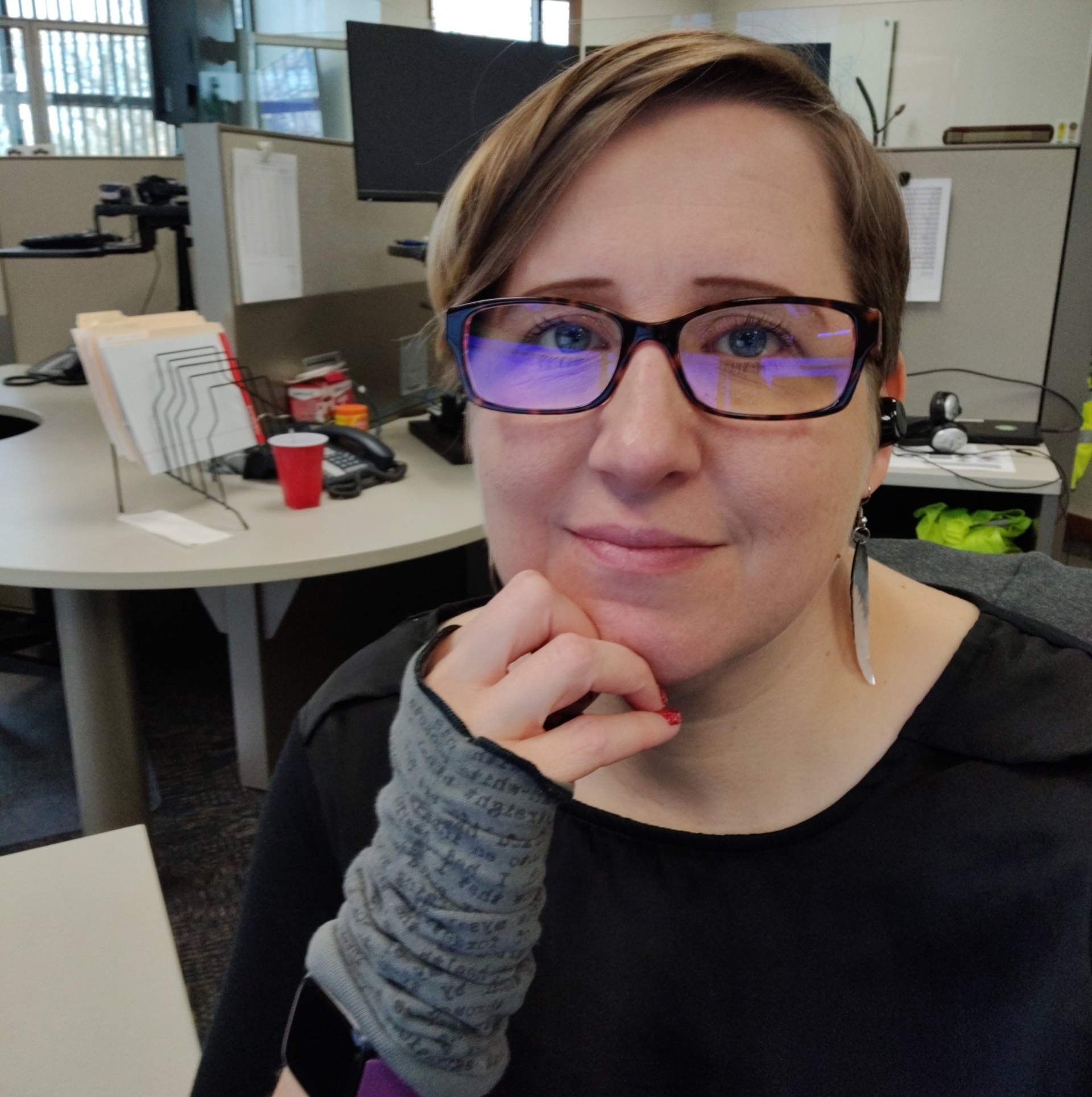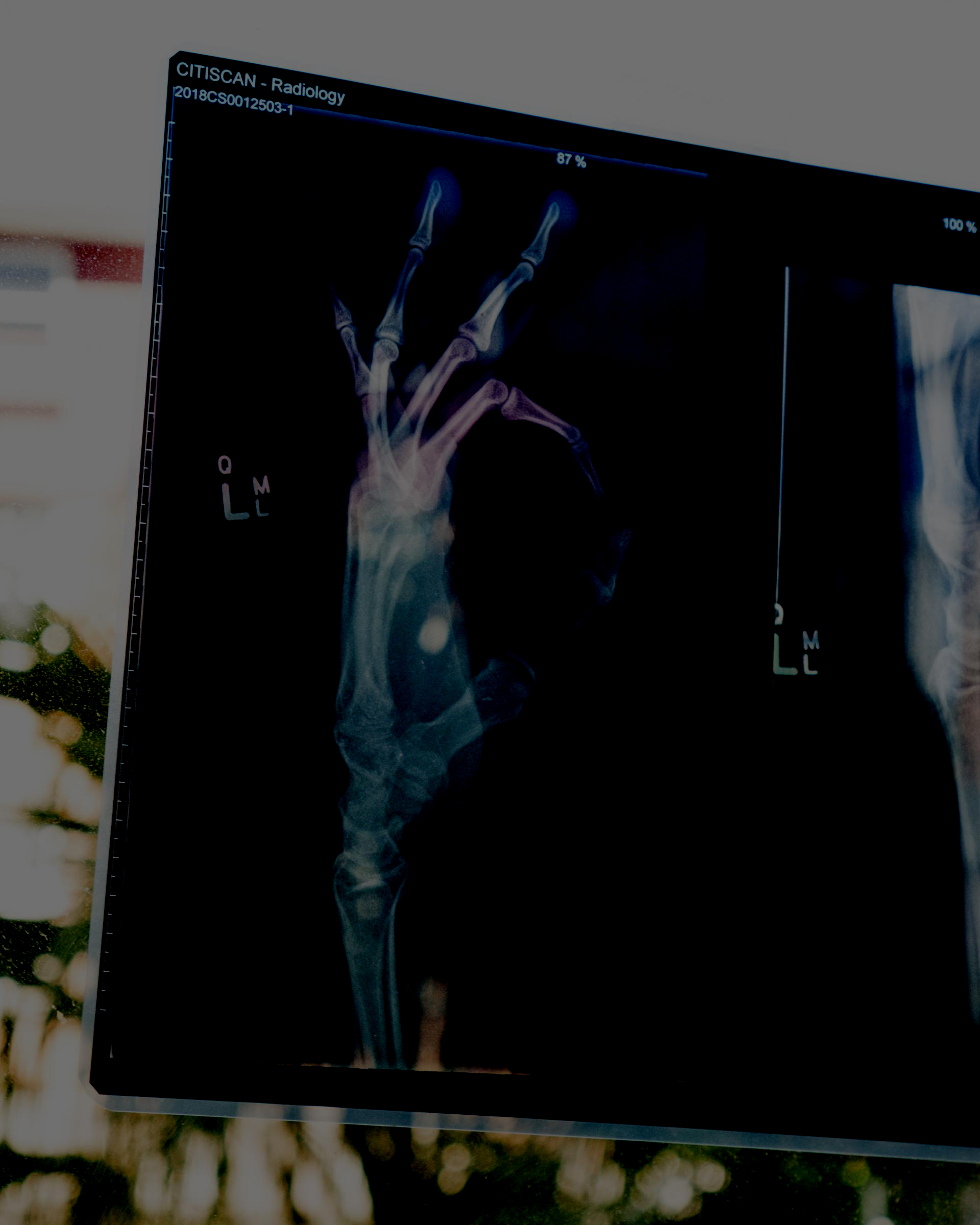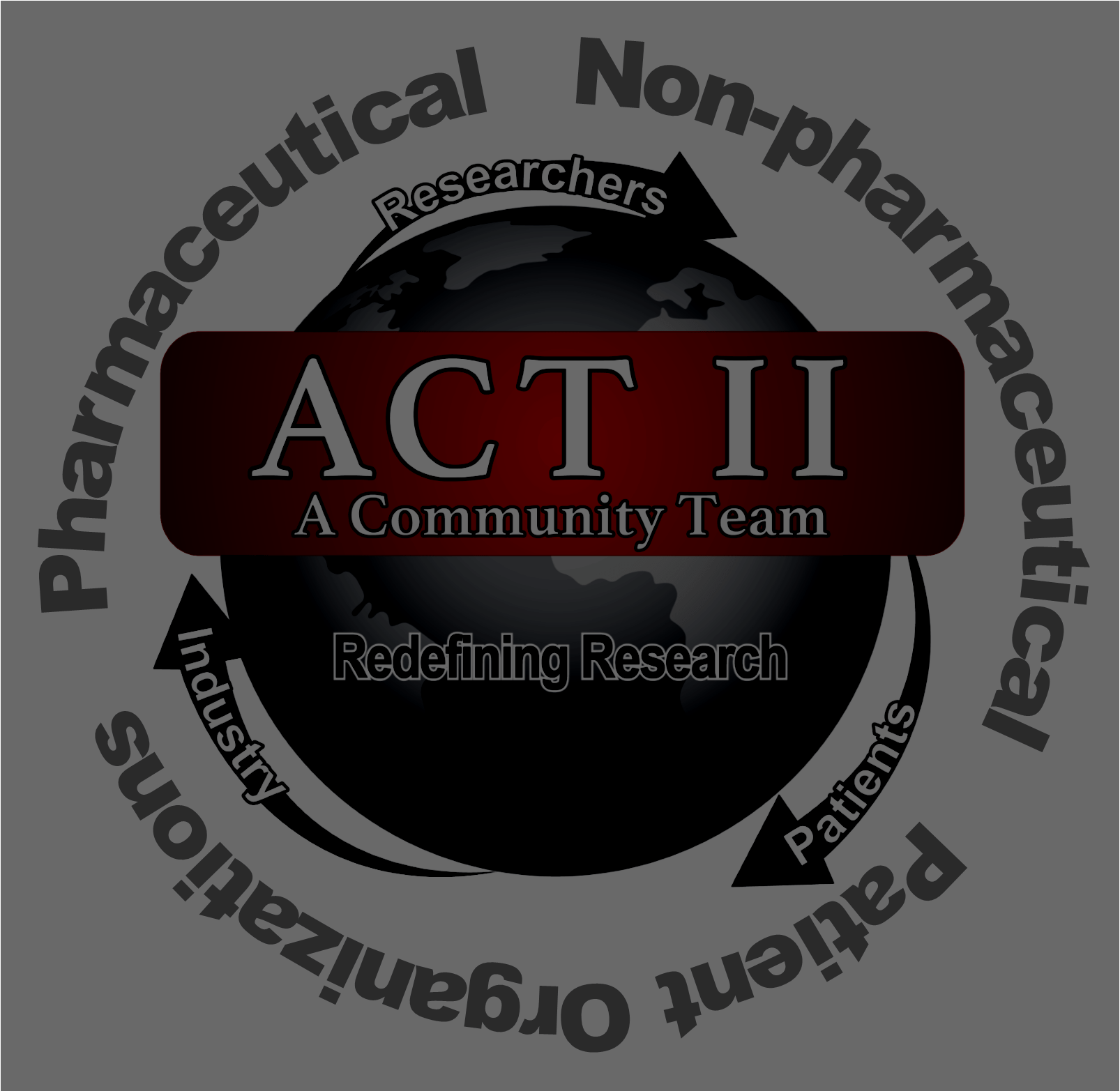Patients Weigh In: What's in a Name - the "Spondy" Evolution
AiArthritis Voices 360 Full Episode 55
Air Date: February 7, 2021
This week join your patient co-hosts Tiffany Westrich-Robertson, Charis Hill, Richard Howard, and Jennifer Walker for a round table conversation about the debate surrounding the nomenclature of the Spondyloarthritis disease umbrella. Tiffany is the CEO of the International Foundation for Autoimmune and Autoinflammatory Arthritis and a patient living with non-radiographic axial spondyloarthritis. Charis is a disability advocate, the author of the blog Being Charis, and a patient originally diagnosed with ankylosing spondylitis, and while would fit the current description (with radiographic damage), at diagnosis they did not have radiographic damage. Rich is the Chief Mission Advancement Officer for the Spondylitis Association of America (SAA) and a patient diagnosed with ankylosing spondylitis and meets the 'text book' description. Jen is a patient advocate and person diagnosed with both rheumatoid arthritis and non-radiographic axial spondyloarthritis.
In the past few years, there was a move to rename this group of spondy diseases as Axial Spondyloarthritis - which includes a continuum of non-radiographic and radiographic (radiographic synonymous with Ankylosing Spondylitis). This means the traditional Ankylosing Spondylitis term will soon be phased out. As persons living with spondyloarthritis conditions, and members of broader patient communities, they know not every patient is aware of these changes.
Tiffany, Charis, Rich, and Jen all attended an American College of Rheumatology (ACR) Study Group on this topic, but due to time constraints, were not able to fully share their opinions with the doctors and researchers in attendance. During this session, participants discussed the pros and cons of using the umbrella term "Axial Spondyloarthritis" (remove non-radiographic/radiographic subgroups) or keeping the differentiated subgroup names. Furthermore, doctors and researchers pointed out the name may not fully reflect the experience of patients (particularly those with less spine inflammation), and as a result, suggested possibly changing the name again. And finally, doctors posed the question, "What do we call it when we talk to patients, particularly those newly diagnosed? What type of education do we provide them?"
As people living with these conditions, who are strong supporters of early diagnosis, education, and precision/personalized research, they have their own opinions about this name evolution. This episode serves as an extension of that session, but with a focus on what patients think, feel, and need...and we are asking all of you to share your thoughts and opinions, too.
- What are your thoughts on another name change? Pros? Cons? If you are a patient, were you even aware that Ankylosing Spondylitis is being phased out?
- What would you have liked to hear when you were diagnosed: an umbrella term or a specific variant name? Why?
- Patients - how should doctors educate us about these conditions?
LISTEN TO THE EPISODE THEN BE SURE TO TAKE A SEAT AT THE TABLE BY JOINING THE CONVERSATION!
(Scroll down the page to learn how!)
Pull up your seat at the table
Now it's YOUR TURN to join the conversation!
What do you think about this episode?
We want to know what you think! By continuing the conversation with your opinions and perspectives - we all get a better understanding of the problems facing our community. Better yet, through these conversations we can start working and developing solutions.
We mean it when say 360. Not only do we want your input anytime and anywhere, but we also are eager to see where the conversation will take us. So please, "pull up a seat at the table" and let's start talking!
Email us at podcast@aiarthritis.org, message us on social media (find us by searching for @IFAiArthritis)
Continue the conversation in our own AiArthritis Voices 360 Talk Show Group!
Pull up a seat and join the conversation on the topic from today and past episodes. You may even get an opportunity to talk directly with the co-hosts and any episode guests!
The
AiArthritis Voices Program
Our AiArthritis Voices 360 Talk Show is just a piece of larger program - the AiArthritis Voices Program.
AiArthritis Voices is our program where people living with AiArthritis diseases and other stakeholders who we need 'at the table' to solve problems that impact education, advocacy, and research sign up to have a voice in our initiatives.
If you want to get more involved, and see more of the opportunities we have for you (and all stakeholders) please check out the
AiArthritis Voices Program. Unite with others around the world to talk, learn, and connect.
Patient Voices and All Other Stakeholders - Join our
AiArthritis Voices Program and Connect to Opportunities to Have Your Voice Counted!
If you are a patient, a parent of a juvenile patient, or any other stakeholder (doctor, nurse, researcher, industry representative, or other health services person) - are you ready to join the conversation? It's your turn to pull up a seat. Join our new AiArthritis Voices program, where people living with AiArthritis diseases and other stakeholders who we need 'at the table' to solve problems that impact education, advocacy, and research sign up to have a voice in our initiatives. By signing up, you’ll get notified of opportunities to be more involved with this show - including submitting post-episode comments and gaining insider information on future show topics. Patients and all other stakeholders are encouraged to join so we can match you with opportunities to pull up a seat and TOGETHER - as equals - solve the problems of today and tomorrow.
AiArthritis Voices 360 is produced by the International Foundation for Autoimmune and Autoinflammatory Arthritis. Visit us on the web at www.aiarthritis.org/talkshow. Find us on Twitter, Instagram, TikTok, or Facebook (@IFAiArthritis) or email us (podcast@aiarthritis.org).
Be sure to check out our top-rated show on Feedspot!
Show Notes:
00:53 - Tiffany welcomes listeners.
01:20 - Tiffany welcomes her fellow Spondyloarthritis patient co-hosts Charis Hill, Richard Howard, and Jennifer Walker.
03:51 - Today’s episode is a continued conversation from an American College of Rheumatology Conference study group about the nomenclature (naming) of Spondyloarthritis.
04:55 - Tiffany shares her diagnosis story and how the addition of the Non-Radiographic Spondyloarthritis diagnosis changed her disease journey.
06:35 - Jennifer had to fight with her doctor to get her diagnosis because rheumatologists are so resistant to acknowledging that patients could have both RA and AxSpa.
08:58 - Changing the name of a disease after patients have spent years fighting for a diagnosis can feel like the rug is being pulled out from under you.
12:10 - Charis feels strongly that having the entire community of patients, physicians, and researchers united behind one name is very important.
13:30 - Ankylosing Spondylitis is now a continuum of Non-radiographic axial spondyloarthritis to radiographic axial spondyloarthritis, but not everyone agrees that these new terms are sufficient to cover the full spectrum of disease presentation in patients with varying symptoms and physiological disease processes.
15:18 - This conversation is relevant for all AiArthritis patients because so many AiArthritis diseases have movements to change names or formally recognize differences in patient experiences.
15:52 - Prior to the name change, people with nr-AxSpa (who are more often women) were told they had “undifferentiated spondylitis,” and their disease progression - which was often more disabling than traditional Ankylosing Spondylitis - was not even acknowledged by their physicians.
18:00 - Rheumatologists often tell patients that the name of their disease doesn’t matter because it doesn’t change how it will be treated, which can be very frustrating for patients.
18:22 - Changing the name of a disease in a patient record can change the treatment options based on what private insurance or national health plans will cover for a given diagnostic code.
19:11 - Information on the internet that is accessible to patients is not always reliable or accurate because information changes so quickly as the research evolves.
25:11 - Doctors favor lumping all patients on the AxSpa continuum under one umbrella.
25:34 - One of the big questions put forth to the study group was: how do we educate patients?
25:58 - As a patient, Tiffany wants to understand where she fits on the continuum so she can build relationships with other patients and know where she is in terms of disease progression.
26:52 - Medical practitioners have a tendency to try and simplify things for patients, but that can be frustrating for people who want a depth of knowledge about their condition.
27:48 - Patient advocates have to juggle their own preferences, the need for scientific accuracy, and the larger patient community’s preferences.
30:02 - The Spondylitis Association conducted a survey of their members, and the feedback strongly indicated a preference to retain the “Ankylosing Spondylitis” name among people who were initially diagnosed that way.
33:08 - Specific names for disease conditions can be validating for patients, but belonging to an umbrella “family” of diseases is also a positive community experience.
34:05 - Over-specificity may be confusing for patients who don’t have a background in medicine.
36:50 - ICD Billing codes heavily influence nomenclature.
38:48 - Patients need to know what they have in order to participate in research projects or participate in conversations that impact their lives.
43:31 - Knowing more about the variants of the disease can help doctors treat patients more effectively.
44:45 - It might be helpful to have a pamphlet that covers the variants of the Spondyloarthritis umbrella for newly-diagnosed patients.
48:19 - It is naive in 2021 to have a disconnect between what doctors tell their patients and what is coded in the medical record since patients all have access to their electronic medical records now.
49:27 - Rheumatologists never distinguish between seronegative and seropositive RA, but patients very often specify which variety they have.
50:27 - The ACR study group did an informal survey of the rheumatologists in attendance and found that 50% of respondents were still giving nr-AxSpa patients an Ankylosing Spondylitis diagnosis.
50:54 - The AiArthritis community - including both patients and physicians - needs to get on the same page with regard to the nomenclature.
51:10 - The next step in this process should be to host conversations between patients and rheumatologists to get doctors to listen and react to the patient perspective.
52:32 - Patients with chronic diseases have long-term relationships with their physicians.
53:13 - Doctors often decide what they think patients need to hear, and it can negatively impact patient treatment when patients aren’t given all the information they need to advocate for themselves and participate in their own treatment decisions.
54:23 - Nomenclature decisions don’t just impact doctors and patients as regulatory agencies, insurance companies, researchers, and the pharmaceutical industry may all want to participate in this decision.
56:20 - Tiffany thanks Charis, Rich, Jen, and the listeners for joining us today.
56:46 - For more information, visit us on social media @IFAiArthritis on all platforms.
57:08 - We especially want to know what you would have liked to hear when you were diagnosed: an umbrella term or a specific variant name?
57:44 - If you are any other stakeholder, we would love to hear from you also on social media or you can email us @ podcast@aiarthritis.org.
58:50 - You can find Jennifer on Facebook, instagram, or Twitter @UnexpectedAdvocate or on the web @ jwalkerart.com.
59:40 - You can find Charis on Twitter @BeingCharisblog or on the web @ beingcharis.com.
1:00:25 - You can find the Spondylitis Association of America @Spondylitis on all social media platforms or on the web @ spondylitis.org or get in touch with Rich directly @RichAHoward on all platforms.
Be sure to check out our top-rated show on
Feedspot!
Your Co-Hosts & Guests: Who is at the table this episode?
Tiffany Westrich-Robertson
Tiffany is the CEO at International Foundation for AiArthritis and uses her professional expertise in mind-mapping and problem solving to help others, like her, who live with AiArthritis diseases work in unison to identify and solve unresolved community issues. For the last several years, she has continued her education in research, including becoming a professional focus group moderator, and translated this experience at our organization to develop award-winning, innovative projects that are taking patient engagement to next levels.
Tiffany has served on several advisory boards, including those to advance patient voices in policy, clinical trials, and precision medicine. In addition to reviewing grants at PCORI and for the Department of Defense, she was the sole patient grant reviewer for the National Institute of Arthritis and Musculoskeletal and Skin diseases from 2015-2018. She currently participates as a Patient Research Partner for OMERACT (Outcome Measures in Rheumatology), co-leads our organizations' international effort to advance patient voices in rheumatology research (the ACTion Council) and has dedicated her professional career to developing other patients to utilize their voices to impact the future of millions.
Charis Hill
Richard Howard
Jennifer Walker
Love the show? Help us make sure we stay on the air by making a donation.
Your contribution helps us continue the work we do every day to improve the lives of millions worldwide.








